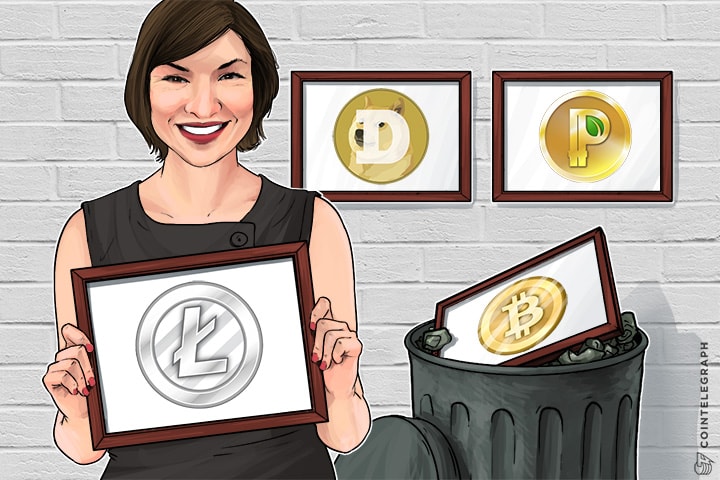Should you dump Bitcoin and go out with a new cryptocurrency? Amanda Johnson of The Daily Decrypt thinks we should get over Bitcoin and push altcoin adoption instead.
Bitcoin’s block size limit issues have caused significant transaction delays and fueled fears of it eventually becoming unworkable. This threatens its prospects for future adoption by the general public, and block mining by nodes that would allow double the block size has stalled. Meanwhile, various other cryptocurrencies have remained largely unaffected by Bitcoin’s woes, and some, such as Ethereum, have even flourished.
Cointelegraph spoke with Amanda Johnson, host of the cryptocurrency and decentralization show The Daily Decrypt, about the path forward for Bitcoin, and possibly abandoning it in favor of its competitors.
Open-source spirit
Cointelegraph: Do you think the block size limit will be the end of Bitcoin? Do you think it will be the end of Bitcoin's hegemonic dominance?
Amanda Johnson: Potentially -- primarily because it indicates a disinterest among the network's decision-makers to compete for customers. Several other cryptos have made remarkably useful technical advancements, and almost any of them could have been copied and incorporated straight into Bitcoin. That is the very spirit of open-source - you share your advancements with everyone, and then you get to copy everyone else's advancements yourself.
But there is still a lot of "Bitcoin maximalism" going around, which means many users of its network believe it is specially ordained by an invisible power -- is somehow destined -- to become a global main chain forever, amen. But markets always root out this kind of magical thinking. It's just a matter of time.
Not all altcoins created equal
CT: Are altcoins a viable solution in the short term?
AJ: Not all 'altcoins' are created equal. Each one is different and has different potential. If any of them starts gaining traction, which several already are, they won't be "short-term" solutions. They'll be the *new* solutions. And if their decision-makers then act like maximalists themselves, they'll be replaced by other upstarts, and so on and so forth. This is the story of technology.
Whomever serves consumers best, fastest, and cheapest will become market leader. This with the caveat that security is of the utmost importance, because all the fast-and-cheap transactions in the world mean little if a network's blockchain is defrauded with an attack.
CT: Bitcoin has a wide lead in adoption past altcoins and has become the standard bearer for crypto to the masses. If it becomes unusable, do you think businesses are likely to switch to altcoins, or abandon crypto altogether?
AJ: The former, for the most part. Once you've experienced the freedom of using crypto, you don't go back!
Willingness to compete
CT: In an episode of your show, you called on viewers to push for greater altcoin adoption. For crypto activists, what's the best path forward: push altcoin adoption, or push for developers to solve the block size issue?
AJ: Again, the former. All of us have scarce time and resources which must be allocated at the expense of all other options. I think it's a better strategy to devote energy to networks where key players have demonstrated a willingness to compete, rather than spending time, energy, and money trying to convince short-sighted players that competition is a requirement for survival.


